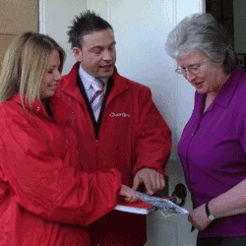The government has supported Lord Hodgson’s recommendation that the fundraising sector should work together to create a sector-funded, self-regulatory body covering all of fundraising and will formally review its success in 2017.
However, if the initiative fails to make sufficient progress, regulation of fundraising remains a “serious option” for government.
Today the government has published its response to Lord Hodgson's review of the Charities Act 2006 and the Public Administration Select Committee's report on the Act.
Both recommended maintaining self-regulation of fundraising, but said the sector needed to improve and that its work should be reviewed in the future by government.
The Cabinet Office is already funding a review to improve and rationalise the self-regulation of fundraising.
FRSB membership
The government also accepted a recommendation that the Charity Commission, umbrella bodies and FRSB work together to promote membership of the FRSB, and that the FRSB should audit its members’ compliance and move away from a system that relies on self-certification. The FRSB announced in the summer that it would begin piloting compliance audits of members.
The government also agreed that membership of the FRSB should not be compulsory at this stage, but said that there should be an expectation that all fundraising charities with an income over £1m should be members.
National Exemption Orders to stay
Elsewhere, the government agreed with Lord Hodgson that the licensing system for public charitable collections - which include cash and other goods, such as clothing - needs to be reformed.
Lord Hodgson recommended a series of changes to the rules for the licensing of public charitable collections, including bringing face-to-face collections under the current regime and the abolishing of National Exemption Orders (NEOs). NEOs are held by a few dozen charities and means that unlike most charities, those organisations do not need to get permission from local authorities to conduct house-to-house collections within a given area.
The government said today that it recognises that the existing rules for licensing charity collections are outdated and is working with the fundraising sector and other stakeholders to explore options for change.
The government confirmed that it will not abolish National Exemption Orders, as it would result in significant regulatory burdens for large charities that rely on them. However, it said it recognised that there is a need to strengthen the system to ensure that the interests of small charities and local licensing authorities are not ignored, and it will work with both to explore options for change.
Standardisation of charitable bequests
Elsewhere, the government supported a recommendation that professionals advisers should work to identify a standard form of wording for a charitable bequest that can be used easily by will drafters and members of the public.
Government plans to work with the Law Society, Institute of Professional Will Writers, the Society of Will Writers and the Institute of Legacy Management to scope the potential for improving the drafting of wills.
It has also asked the Law Commission to consider the burden to charities where there is a merger, but a bequest is still connected an original charity which has to be maintained as a dormant “shell” charity.









